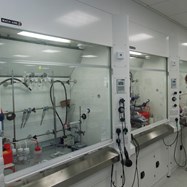Science cuts threaten economic recovery, warns Commons report
23 March 2010
Increase in investment in science now or risk devastating British science and the economy in years to come, MPs warned the Government today.
The Science and Technology Committee said cuts would undermine the Government’s previous good record in science and its ambitions for a knowledge-based economy. Tomorrow’s Budget should increase spending on science, urged the all-party committee in a report, The impact of spending cuts on science and science research.
The Pre-Budget Report in December 2009 announced that £600 million would be cut from higher education and science and research budgets by 2012-13.
Welcoming the report, Dr Wendy Piatt, Director General of the Russell Group said: “We strongly support the committee’s call for science spending to be protected and increased. Failure to continue to increase investment in science would be both counterintuitive and counterproductive, as the report argues. Much good progress will be lost and the cuts are unlikely to make a significant dent in the deficit.
“If Russell Group universities are to continue to generate ideas and spin-out companies for the knowledge-based economy – as shown in our report last week on the economic impact of our research – then they need stability of funding. As the report points out, high-tech companies depend upon the size and strength of the science base for their very existence.
“In an increasingly competitive world, Russell Group science departments are international destinations of choice for the most talented researchers and students and, as the committee rightly points out, if there is even a perception that British science is suffering as a result of cuts, the UK will become a less attractive place for academics to work.
“Many science courses are underfunded at present and we strongly support the committee’s call for the allocation of teaching funding by HEFCE for science and engineering subjects to reflect the higher costs of teaching science," she added.
Phil Willis MP, the committee chair, said: "The Government's policy ambitions are at odds with its actions. On the one hand it champions supporting business investment in research and development, while on the other it announces cuts which threaten the very science base that underpins such businesses. We hope that the Budget will contain good news for science funding. Anything less has potentially devastating consequences for science in the UK."
The report concluded: “At a time when, according to the Government’s previous arguments, public
investment in science should be increasing, the prospect of cuts looms large over the UK’s science base. The Government is committed to supporting business investment in research and development through the taxation system, but the very existence of such businesses depends upon the size and strength of the science base underpinning them. If the Government fails to properly support the science base, there will be no companies to give tax breaks to.
“Failure to continue to increase investment in science would be both counterintuitive and counterproductive. Much good progress will be lost and the size of cuts to science are unlikely to make a significant dent in the deficit. We cannot at present reconcile the Government’s policy ambitions with its actions, and call upon the Government to increase spending on science within the next Budget, if it truly is committed to the principle of a knowledge-based economy,” added the report.
A perception that British science is suffering as a result of cuts is likely to make the UK a less attractive place for academics to work. Equally, science may become a less attractive option for students contemplating higher education.
The Committee warns that academia risks losing some of its brightest and best to the bright lights of industry and commerce; the life of a young research scientist should be made more attractive.
The high cost of running science departments remains a threat and the Committee recommends that the Higher Education Funding Council for England's allocation of teaching funding for science, technology, engineering and maths (STEM subjects) should reflect this.
-
Hamir Patel
hamir.patel@russellgroup.ac.uk
020 3816 1316
-
Stephanie Smith
020 3816 1310
 X
X


